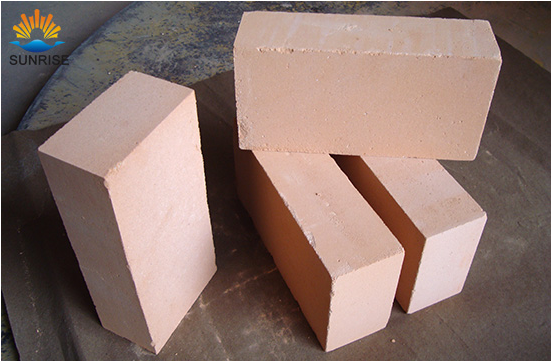Product Search
Quickly find the product you need
Products List
Refractory Knowledge
- Manufacturing process of fire clay insula
- Refractory material production process
- the development of the refractory brick i
- Aggregates Used For the Production of Ins
- Thermal Shock Resistant Fireproof Heat In
- Production Process Methods of Refractory
- Classification of mullite insulation bric
- The Use of Mullite Insulation Bricks
- Pollution and treatment in the production
- Pros and cons of lightweight mullite bric
Products List
- Phone:0086-370-63838939
- Email:sales@sunriserefr.com
- Office Address: No.36 Fengchan Road Of Zhengzhou, Henan, China (Mainland)
What are the characteristics of Refractory Brick?
Date:2016-08-16 17:37 | From:Zhengzhou Sunrise Refractory | Author:admin
Property
1. Chemical composition: main ingredients decide quality and features of the refractory material.
2. Bulk density: per unit volume weight, big density, show good compactness, strength may be high, but the coefficient of thermal conductivity may be larger.
3. Thermal shock resistance: resistance to the ability of rapid changes in temperature and not damaged.
4. The compressive strength : bear ( normal temperature) the biggest pressure ability.
5. The flexural strength: bear the ability of shear pressure .

The physical and chemical properties:
1. Wear resistance
2. Thermal conductivity: under the condition of unit temperature gradient, through the material on heat flow rate per unit area, related to porosity.
3. Impact resistance: good impact resistance, long service life.
4. Slag resistance: at high temperature has the ability of resistance slag erosion without damage.
1. Chemical composition: main ingredients decide quality and features of the refractory material.
2. Bulk density: per unit volume weight, big density, show good compactness, strength may be high, but the coefficient of thermal conductivity may be larger.
3. Thermal shock resistance: resistance to the ability of rapid changes in temperature and not damaged.
4. The compressive strength : bear ( normal temperature) the biggest pressure ability.
5. The flexural strength: bear the ability of shear pressure .

The physical and chemical properties:
1. Wear resistance
2. Thermal conductivity: under the condition of unit temperature gradient, through the material on heat flow rate per unit area, related to porosity.
3. Impact resistance: good impact resistance, long service life.
4. Slag resistance: at high temperature has the ability of resistance slag erosion without damage.

